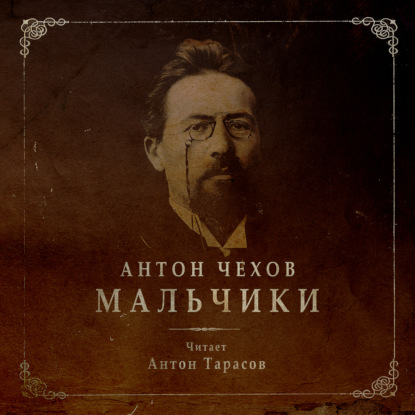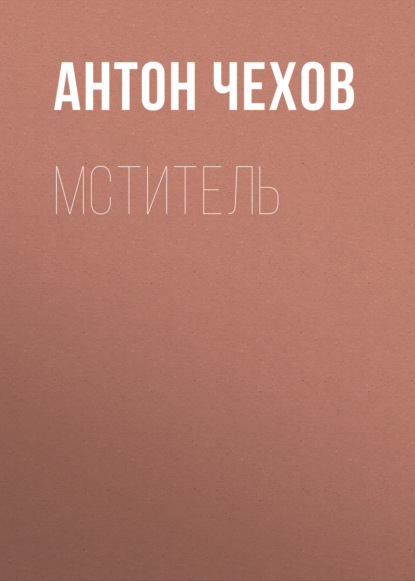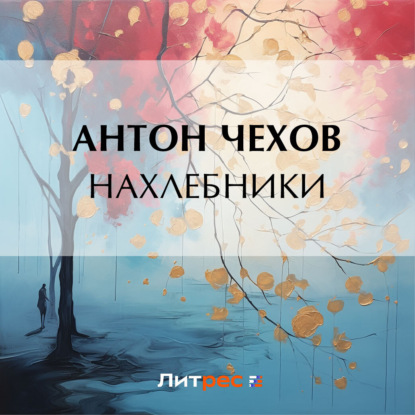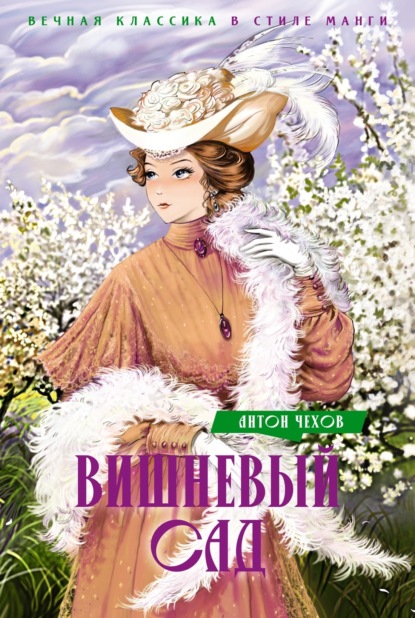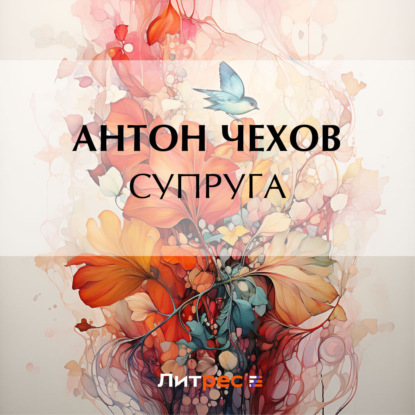 Полная версия
Полная версияПолная версия:
Антон Павлович Чехов Swan Song
- + Увеличить шрифт
- - Уменьшить шрифт

Anton Pavlovich Chekhov
Swan Song
THE last years of the nineteenth century were for Russia tinged with doubt and gloom. The high-tide of vitality that had risen during the Turkish war ebbed in the early eighties, leaving behind it a dead level of apathy which lasted until life was again quickened by the high interests of the Revolution. During these grey years the lonely country and stagnant provincial towns of Russia buried a peasantry which was enslaved by want and toil, and an educated upper class which was enslaved by idleness and tedium. Most of the “Intellectuals,” with no outlet for their energies, were content to forget their ennui in vodka and card-playing; only the more idealistic gasped for air in the stifling atmosphere, crying out in despair against life as they saw it, and looking forward with a pathetic hope to happiness for humanity in “two or three hundred years.” It is the inevitable tragedy of their existence, and the pitiful humour of their surroundings, that are portrayed with such insight and sympathy by Anton Tchekoff who is, perhaps, of modern writers, the dearest to the Russian people.
Anton Tchekoff was born in the old Black Sea port of Taganrog on January 17, 1860. His grandfather had been a serf; his father married a merchant’s daughter and settled in Taganrog, where, during Anton’s boyhood, he carried on a small and unsuccessful trade in provisions. The young Tchekoff was soon impressed into the services of the large, poverty-stricken family, and he spoke regretfully in after years of his hard-worked childhood. But he was obedient and good-natured, and worked cheerfully in his father’s shop, closely observing the idlers that assembled there, and gathering the drollest stories, which he would afterward whisper in class to his laughing schoolfellows. Many were the punishments which he incurred by this habit, which was incorrigible.
His grandfather had now become manager of an estate near Taganrog, in the wild steppe country of the Don Cossacks, and here the boy spent his summers, fishing in the river, and roving about the countryside as brown as a gipsy, sowing the seeds of that love for nature which he retained all his life. His evenings he liked best to spend in the kitchen of the master’s house among the work people and peasants who gathered there, taking part in their games, and setting them all laughing by his witty and telling observations.
When Tchekoff was about fourteen, his father moved the family to Moscow, leaving Anton in Taganrog, and now, relieved of work in the shop, his progress at school became remarkable. At seventeen he wrote a long tragedy, which was afterward destroyed, and he already showed flashes of the wit that was soon to blaze into genius.
He graduated from the high school at Taganrog with every honour, entered the University of Moscow as a student of medicine, and threw himself headlong into a double life of student and author, in the attempt to help his struggling family.
His first story appeared in a Moscow paper in 1880, and after some difficulty he secured a position connected with several of the smaller periodicals, for which, during his student years, he poured forth a succession of short stories and sketches of Russian life with incredible rapidity. He wrote, he tells us, during every spare minute, in crowded rooms where there was “no light and less air,” and never spent more than a day on any one story. He also wrote at this time a very stirring blood-and-thunder play which was suppressed by the censor, and the fate of which is not known.
His audience demanded laughter above all things, and, with his deep sense of the ridiculous, Tchekoff asked nothing better. His stories, though often based on themes profoundly tragic, are penetrated by the light and subtle satire that has won him his reputation as a great humourist. But though there was always a smile on his lips, it was a tender one, and his sympathy with suffering often brought his laughter near to tears.
This delicate and original genius was at first subjected to harsh criticism, which Tchekoff felt keenly, and Trigorin’s description in “The Sea-Gull” of the trials of a young author is a cry from Tchekoff’s own soul. A passionate enemy of all lies and oppression, he already foreshadows in these early writings the protest against conventions and rules, which he afterward put into Treplieff’s reply to Sorin in “The Sea-Gull”: “Let us have new forms, or else nothing at all.”
In 1884 he took his degree as doctor of medicine, and decided to practise, although his writing had by now taken on a professional character. He always gave his calling a high place, and the doctors in his works are drawn with affection and understanding. If any one spoke slightingly of doctors in his presence, he would exclaim: “Stop! You don’t know what country doctors do for the people!”
Tchekoff fully realised later the influence which his profession had exercised on his literary work, and sometimes regretted the too vivid insight it gave him, but, on the other hand, he was able to write: “Only a doctor can know what value my knowledge of science has been to me,” and “It seems to me that as a doctor I have described the sicknesses of the soul correctly.” For instance, Trigorin’s analysis in “The Sea-Gull” of the state of mind of an author has well been called “artistic diagnosis.”
The young doctor-writer is described at this time as modest and grave, with flashes of brilliant gaiety. A son of the people, there was in his face an expression that recalled the simple-hearted village lad; his eyes were blue, his glance full of intelligence and kindness, and his manners unaffected and simple. He was an untiring worker, and between his patients and his desk he led a life of ceaseless activity. His restless mind was dominated by a passion of energy and he thought continually and vividly. Often, while jesting and talking, he would seem suddenly to plunge into himself, and his look would grow fixed and deep, as if he were contemplating something important and strange. Then he would ask some unexpected question, which showed how far his mind had roamed.
Success was now rapidly overtaking the young author; his first collection of stories appeared in 1887, another one in the same year had immediate success, and both went through many editions; but, at the same time, the shadows that darkened his later works began to creep over his light-hearted humour.
His impressionable mind began to take on the grey tinge of his time, but much of his sadness may also be attributed to his ever-increasing ill health.
Weary and with an obstinate cough, he went south in 1888, took a little cottage on the banks of a little river “abounding in fish and crabs,” and surrendered himself to his touching love for nature, happy in his passion for fishing, in the quiet of the country, and in the music and gaiety of the peasants. “One would gladly sell one’s soul,” he writes, “for the pleasure of seeing the warm evening sky, and the streams and pools reflecting the darkly mournful sunset.” He described visits to his country neighbours and long drives in gay company, during which, he says, “we ate every half hour, and laughed to the verge of colic.”
His health, however, did not improve. In 1889 he began to have attacks of heart trouble, and the sensitive artist’s nature appears in a remark which he made after one of them. “I walked quickly across the terrace on which the guests were assembled,” he said, “with one idea in my mind, how awkward it would be to fall down and die in the presence of strangers.”
It was during this transition period of his life, when his youthful spirits were failing him, that the stage, for which he had always felt a fascination, tempted him to write “Ivanoff,” and also a dramatic sketch in one act entitled “The Swan Song,” though he often declared that he had no ambition to become a dramatist. “The Novel,” he wrote, “is a lawful wife, but the Stage is a noisy, flashy, and insolent mistress.” He has put his opinion of the stage of his day in the mouth of Treplieff, in “The Sea-Gull,” and he often refers to it in his letters as “an evil disease of the towns” and “the gallows on which dramatists are hanged.”
He wrote “Ivanoff” at white-heat in two and a half weeks, as a protest against a play he had seen at one of the Moscow theatres. Ivanoff (from Ivan, the commonest of Russian names) was by no means meant to be a hero, but a most ordinary, weak man oppressed by the “immortal commonplaces of life,” with his heart and soul aching in the grip of circumstance, one of the many “useless people” of Russia for whose sorrow Tchekoff felt such overwhelming pity. He saw nothing in their lives that could not be explained and pardoned, and he returns to his ill-fated, “useless people” again and again, not to preach any doctrine of pessimism, but simply because he thought that the world was the better for a certain fragile beauty of their natures and their touching faith in the ultimate salvation of humanity.
Both the writing and staging of “Ivanoff” gave Tchekoff great difficulty. The characters all being of almost equal importance, he found it hard to get enough good actors to take the parts, but it finally appeared in Moscow in 1889, a decided failure! The author had touched sharply several sensitive spots of Russian life – for instance, in his warning not to marry a Jewess or a blue-stocking – and the play was also marred by faults of inexperience, which, however, he later corrected. The critics were divided in condemning a certain novelty in it and in praising its freshness and originality. The character of Ivanoff was not understood, and the weakness of the man blinded many to the lifelike portrait. Tchekoff himself was far from pleased with what he called his “literary abortion,” and rewrote it before it was produced again in St. Petersburg. Here it was received with the wildest applause, and the morning after its performance the papers burst into unanimous praise. The author was enthusiastically feted, but the burden of his growing fame was beginning to be very irksome to him, and he wrote wearily at this time that he longed to be in the country, fishing in the lake, or lying in the hay.
His next play to appear was a farce entitled “The Boor,” which he wrote in a single evening and which had a great success. This was followed by “The Demon,” a failure, rewritten ten years later as “Uncle Vanya.”
All Russia now combined in urging Tchekoff to write some important work, and this, too, was the writer’s dream; but his only long story is “The Steppe,” which is, after all, but a series of sketches, exquisitely drawn, and strung together on the slenderest connecting thread. Tchekoff’s delicate and elusive descriptive power did not lend itself to painting on a large canvas, and his strange little tragicomedies of Russian life, his “Tedious Tales,” as he called them, were always to remain his masterpieces.
In 1890 Tchekoff made a journey to the Island of Saghalien, after which his health definitely failed, and the consumption, with which he had long been threatened, finally declared itself. His illness exiled him to the Crimea, and he spent his last ten years there, making frequent trips to Moscow to superintend the production of his four important plays, written during this period of his life.
“The Sea-Gull” appeared in 1896, and, after a failure in St. Petersburg, won instant success as soon as it was given on the stage of the Artists’ Theatre in Moscow. Of all Tchekoff’s plays, this one conforms most nearly to our Western conventions, and is therefore most easily appreciated here. In Trigorin the author gives us one of the rare glimpses of his own mind, for Tchekoff seldom put his own personality into the pictures of the life in which he took such immense interest.
In “The Sea-Gull” we see clearly the increase of Tchekoff’s power of analysis, which is remarkable in his next play, “The Three Sisters,” gloomiest of all his dramas.
“The Three Sisters,” produced in 1901, depends, even more than most of Tchekoff’s plays, on its interpretation, and it is almost essential to its appreciation that it should be seen rather than read. The atmosphere of gloom with which it is pervaded is a thousand times more intense when it comes to us across the foot-lights. In it Tchekoff probes the depths of human life with so sure a touch, and lights them with an insight so piercing, that the play made a deep impression when it appeared. This was also partly owing to the masterly way in which it was acted at the Artists’ Theatre in Moscow. The theme is, as usual, the greyness of provincial life, and the night is lit for his little group of characters by a flash of passion so intense that the darkness which succeeds it seems well-nigh intolerable.
“Uncle Vanya” followed “The Three Sisters,” and the poignant truth of the picture, together with the tender beauty of the last scene, touched his audience profoundly, both on the stage and when the play was afterward published.
“The Cherry Orchard” appeared in 1904 and was Tchekoff’s last play. At its production, just before his death, the author was feted as one of Russia’s greatest dramatists. Here it is not only country life that Tchekoff shows us, but Russian life and character in general, in which the old order is giving place to the new, and we see the practical, modern spirit invading the vague, aimless existence so dear to the owners of the cherry orchard. A new epoch was beginning, and at its dawn the singer of old, dim Russia was silenced.
In the year that saw the production of “The Cherry Orchard,” Tchekoff, the favourite of the Russian people, whom Tolstoi declared to be comparable as a writer of stories only to Maupassant, died suddenly in a little village of the Black Forest, whither he had gone a few weeks before in the hope of recovering his lost health.
Tchekoff, with an art peculiar to himself, in scattered scenes, in haphazard glimpses into the lives of his characters, in seemingly trivial conversations, has succeeded in so concentrating the atmosphere of the Russia of his day that we feel it in every line we read, oppressive as the mists that hang over a lake at dawn, and, like those mists, made visible to us by the light of an approaching day.
VASILI SVIETLOVIDOFF, a comedian, 68 years old
NIKITA IVANITCH, a prompter, an old man
The scene is laid on the stage of a country theatre, at night, after the play. To the right a row of rough, unpainted doors leading into the dressing-rooms. To the left and in the background the stage is encumbered with all sorts of rubbish. In the middle of the stage is an overturned stoolSVIETLOVIDOFF. [With a candle in his hand, comes out of a dressing-room and laughs] Well, well, this is funny! Here’s a good joke! I fell asleep in my dressing-room when the play was over, and there I was calmly snoring after everybody else had left the theatre. Ah! I’m a foolish old man, a poor old dodderer! I have been drinking again, and so I fell asleep in there, sitting up. That was clever! Good for you, old boy! [Calls] Yegorka! Petrushka! Where the devil are you? Petrushka! The scoundrels must be asleep, and an earthquake wouldn’t wake them now! Yegorka! [Picks up the stool, sits down, and puts the candle on the floor] Not a sound! Only echos answer me. I gave Yegorka and Petrushka each a tip to-day, and now they have disappeared without leaving a trace behind them. The rascals have gone off and have probably locked up the theatre. [Turns his head about] I’m drunk! Ugh! The play to-night was for my benefit, and it is disgusting to think how much beer and wine I have poured down my throat in honour of the occasion. Gracious! My body is burning all over, and I feel as if I had twenty tongues in my mouth. It is horrid! Idiotic! This poor old sinner is drunk again, and doesn’t even know what he has been celebrating! Ugh! My head is splitting, I am shivering all over, and I feel as dark and cold inside as a cellar! Even if I don’t mind ruining my health, I ought at least to remember my age, old idiot that I am! Yes, my old age! It’s no use! I can play the fool, and brag, and pretend to be young, but my life is really over now, I kiss my hand to the sixty-eight years that have gone by; I’ll never see them again! I have drained the bottle, only a few little drops are left at the bottom, nothing but the dregs. Yes, yes, that’s the case, Vasili, old boy. The time has come for you to rehearse the part of a mummy, whether you like it or not. Death is on its way to you. [Stares ahead of him] It is strange, though, that I have been on the stage now for forty-five years, and this is the first time I have seen a theatre at night, after the lights have been put out. The first time. [Walks up to the foot-lights] How dark it is! I can’t see a thing. Oh, yes, I can just make out the prompter’s box, and his desk; the rest is in pitch darkness, a black, bottomless pit, like a grave, in which death itself might be hiding… Brr… How cold it is! The wind blows out of the empty theatre as though out of a stone flue. What a place for ghosts! The shivers are running up and down my back. [Calls] Yegorka! Petrushka! Where are you both? What on earth makes me think of such gruesome things here? I must give up drinking; I’m an old man, I shan’t live much longer. At sixty-eight people go to church and prepare for death, but here I am – heavens! A profane old drunkard in this fool’s dress – I’m simply not fit to look at. I must go and change it at once… This is a dreadful place, I should die of fright sitting here all night. [Goes toward his dressing-room; at the same time NIKITA IVANITCH in a long white coat comes out of the dressing-room at the farthest end of the stage. SVIETLOVIDOFF sees IVANITCH – shrieks with terror and steps back] Who are you? What? What do you want? [Stamps his foot] Who are you?
IVANITCH. It is I, sir.
SVIETLOVIDOFF. Who are you?
IVANITCH. [Comes slowly toward him] It is I, sir, the prompter, Nikita Ivanitch. It is I, master, it is I!
SVIETLOVIDOFF. [Sinks helplessly onto the stool, breathes heavily and trembles violently] Heavens! Who are you? It is you.. you Nikitushka? What.. what are you doing here?
IVANITCH. I spend my nights here in the dressing-rooms. Only please be good enough not to tell Alexi Fomitch, sir. I have nowhere else to spend the night; indeed, I haven’t.
SVIETLOVIDOFF. Ah! It is you, Nikitushka, is it? Just think, the audience called me out sixteen times; they brought me three wreathes and lots of other things, too; they were all wild with enthusiasm, and yet not a soul came when it was all over to wake the poor, drunken old man and take him home. And I am an old man, Nikitushka! I am sixty-eight years old, and I am ill. I haven’t the heart left to go on. [Falls on IVANITCH’S neck and weeps] Don’t go away, Nikitushka; I am old and helpless, and I feel it is time for me to die. Oh, it is dreadful, dreadful!
IVANITCH. [Tenderly and respectfully] Dear master! it is time for you to go home, sir!
SVIETLOVIDOFF. I won’t go home; I have no home – none! none! – none!
IVANITCH. Oh, dear! Have you forgotten where you live?
SVIETLOVIDOFF. I won’t go there. I won’t! I am all alone there. I have nobody, Nikitushka! No wife – no children. I am like the wind blowing across the lonely fields. I shall die, and no one will remember me. It is awful to be alone – no one to cheer me, no one to caress me, no one to help me to bed when I am drunk. Whom do I belong to? Who needs me? Who loves me? Not a soul, Nikitushka.
IVANITCH. [Weeping] Your audience loves you, master.
SVIETLOVIDOFF. My audience has gone home. They are all asleep, and have forgotten their old clown. No, nobody needs me, nobody loves me; I have no wife, no children.
IVANITCH. Oh, dear! Oh, dear! Don’t be so unhappy about it.
SVIETLOVIDOFF. But I am a man, I am still alive. Warm, red blood is tingling in my veins, the blood of noble ancestors. I am an aristocrat, Nikitushka; I served in the army, in the artillery, before I fell as low as this, and what a fine young chap I was! Handsome, daring, eager! Where has it all gone? What has become of those old days? There’s the pit that has swallowed them all! I remember it all now. Forty-five years of my life lie buried there, and what a life, Nikitushka! I can see it as clearly as I see your face: the ecstasy of youth, faith, passion, the love of women – women, Nikitushka!
IVANITCH. It is time you went to sleep, sir.
SVIETLOVIDOFF. When I first went on the stage, in the first glow of passionate youth, I remember a woman loved me for my acting. She was beautiful, graceful as a poplar, young, innocent, pure, and radiant as a summer dawn. Her smile could charm away the darkest night. I remember, I stood before her once, as I am now standing before you. She had never seemed so lovely to me as she did then, and she spoke to me so with her eyes – such a look! I shall never forget it, no, not even in the grave; so tender, so soft, so deep, so bright and young! Enraptured, intoxicated, I fell on my knees before her, I begged for my happiness, and she said: “Give up the stage!” Give up the stage! Do you understand? She could love an actor, but marry him – never! I was acting that day, I remember – I had a foolish, clown’s part, and as I acted, I felt my eyes being opened; I saw that the worship of the art I had held so sacred was a delusion and an empty dream; that I was a slave, a fool, the plaything of the idleness of strangers. I understood my audience at last, and since that day I have not believed in their applause, or in their wreathes, or in their enthusiasm. Yes, Nikitushka! The people applaud me, they buy my photograph, but I am a stranger to them. They don’t know me, I am as the dirt beneath their feet. They are willing enough to meet me.. but allow a daughter or a sister to marry me, an outcast, never! I have no faith in them, [sinks onto the stool] no faith in them.
IVANITCH. Oh, sir! you look dreadfully pale, you frighten me to death! Come, go home, have mercy on me!
SVIETLOVIDOFF. I saw through it all that day, and the knowledge was dearly bought. Nikitushka! After that.. when that girl.. well, I began to wander aimlessly about, living from day to day without looking ahead. I took the parts of buffoons and low comedians, letting my mind go to wreck. Ah! but I was a great artist once, till little by little I threw away my talents, played the motley fool, lost my looks, lost the power of expressing myself, and became in the end a Merry Andrew instead of a man. I have been swallowed up in that great black pit. I never felt it before, but to-night, when I woke up, I looked back, and there behind me lay sixty-eight years. I have just found out what it is to be old! It is all over.. [sobs].. all over.
IVANITCH. There, there, dear master! Be quiet.. gracious! [Calls] Petrushka! Yegorka!
SVIETLOVIDOFF. But what a genius I was! You cannot imagine what power I had, what eloquence; how graceful I was, how tender; how many strings [beats his breast] quivered in this breast! It chokes me to think of it! Listen now, wait, let me catch my breath, there; now listen to this:
“The shade of bloody Ivan now returning Fans through my lips rebellion to a flame, I am the dead Dimitri! In the burning Boris shall perish on the throne I claim. Enough! The heir of Czars shall not be seen Kneeling to yonder haughty Polish Queen!”1Is that bad, eh? [Quickly] Wait, now, here’s something from King Lear. The sky is black, see? Rain is pouring down, thunder roars, lightning – zzz zzz zzz – splits the whole sky, and then, listen:
“Blow winds, and crack your cheeks! rage! blow! You cataracts and hurricanoes spout Till you have drench’d our steeples, drown’d the cocks! You sulphurous thought-executing fires Vaunt-couriers of oak-cleaving thunderbolts Singe my white head! And thou, all shaking thunder, Strike flat the thick rotundity o’ the world! Crack nature’s moulds, all germons spill at once That make ungrateful man!”[Impatiently] Now, the part of the fool. [Stamps his foot] Come take the fool’s part! Be quick, I can’t wait!
IVANITCH. [Takes the part of the fool]
“O, Nuncle, court holy-water in a dry house is better than this rain-water out o’ door. Good Nuncle, in; ask thy daughter’s blessing: here’s a night pities neither wise men nor fools.”SVIETLOVIDOFF.
